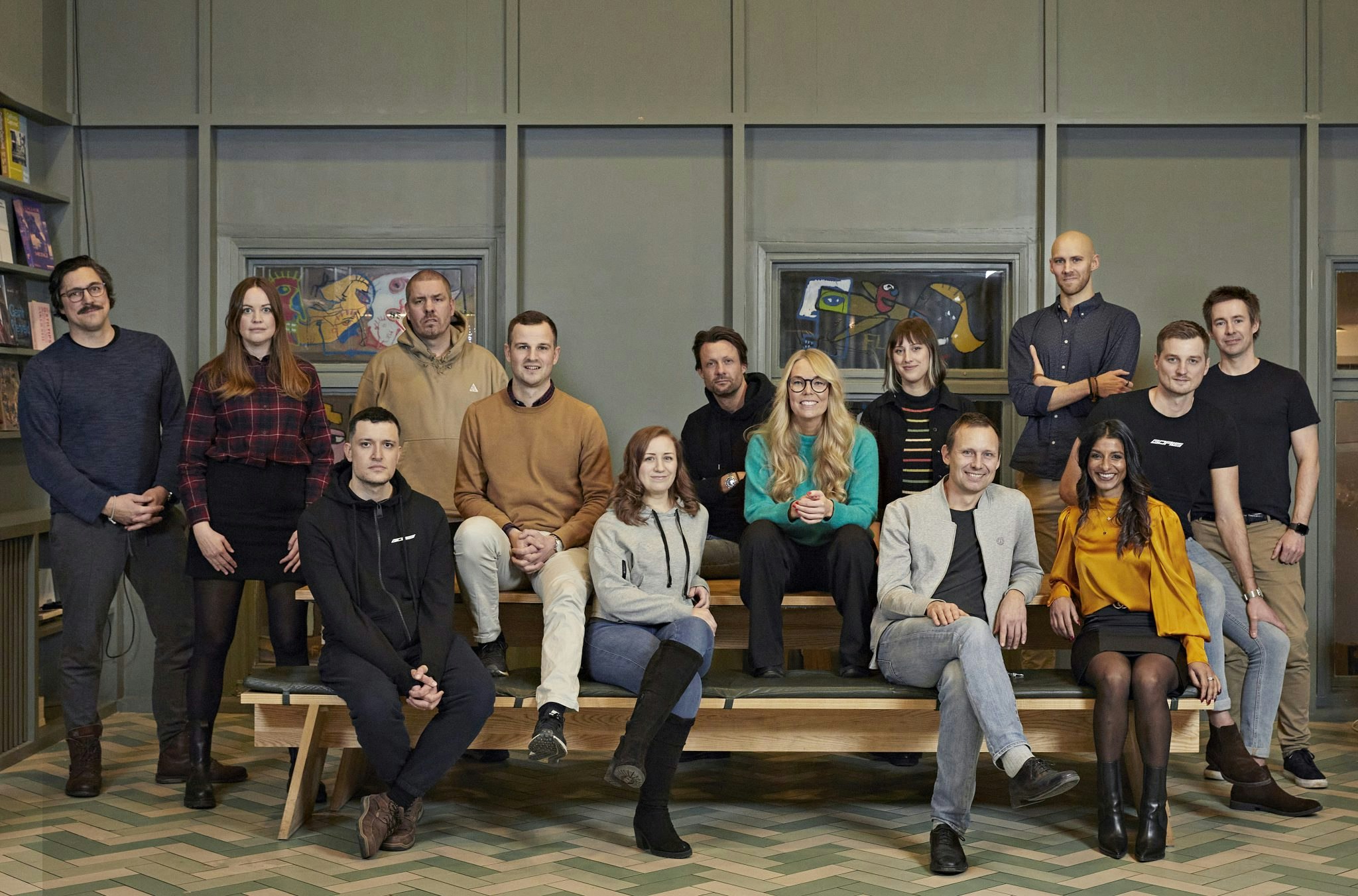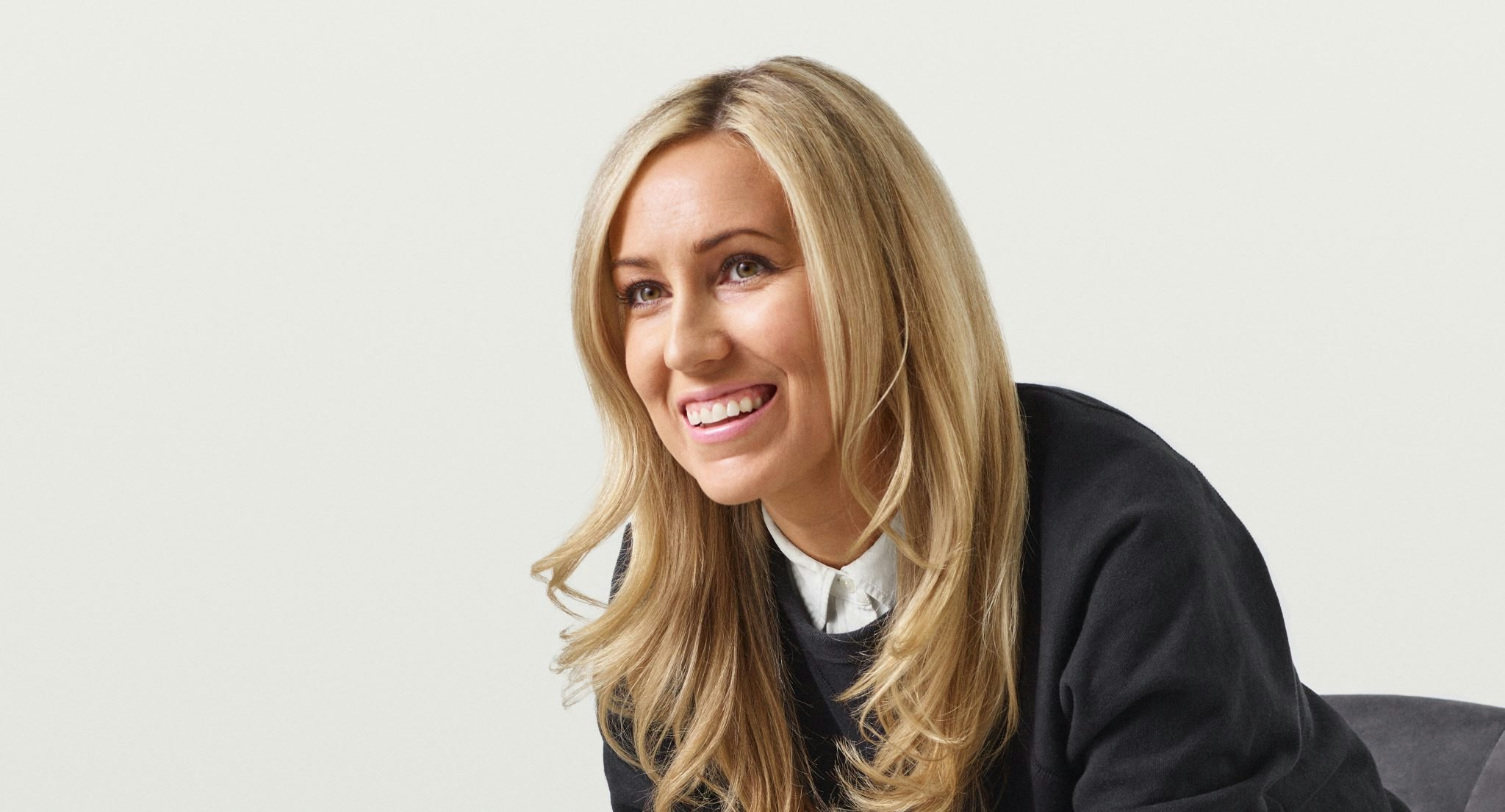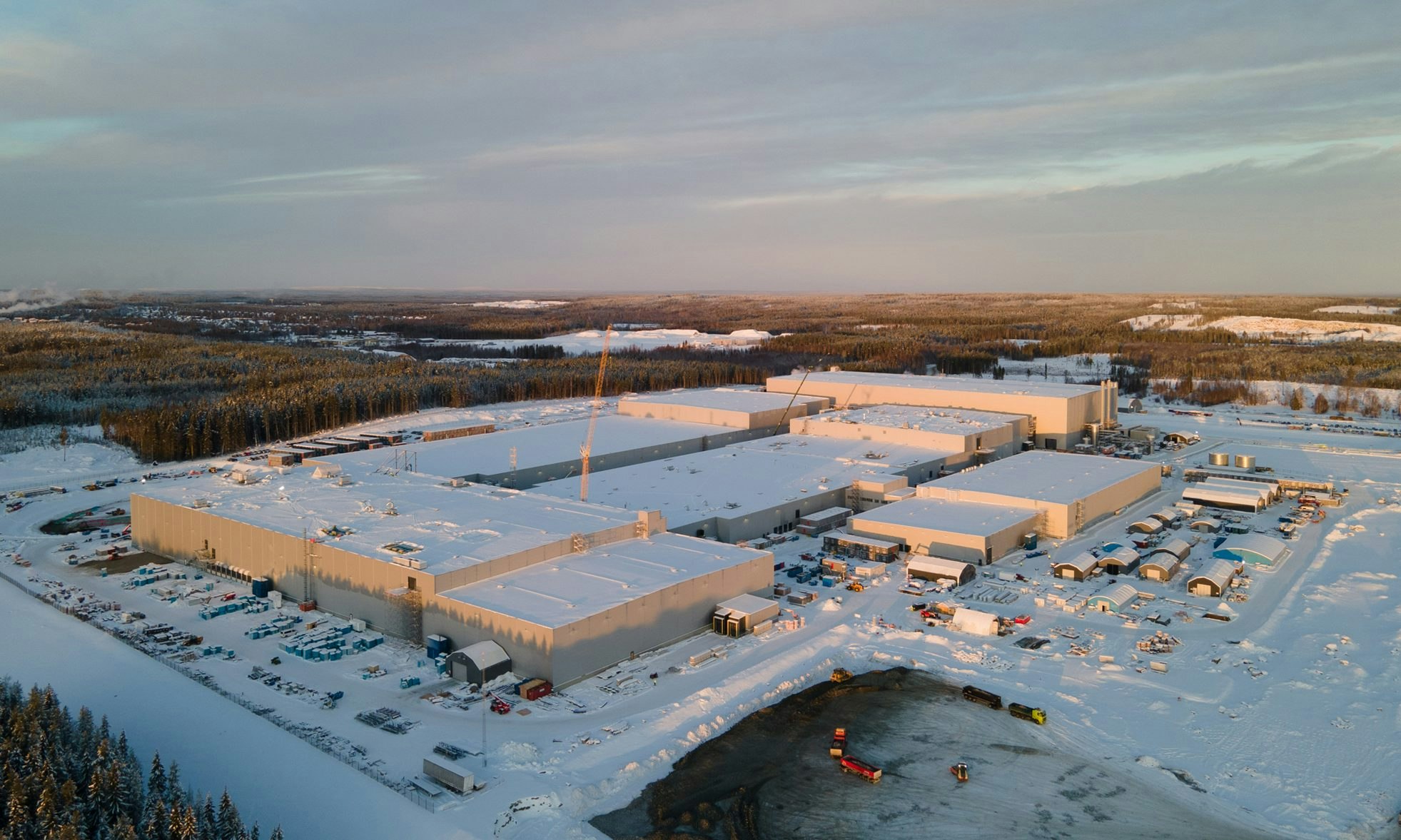Sweden, the small nation nestled in the middle of the Nordics, has one of the most active European startup ecosystems, valued at $2.6bn in Q3 this year — on a par with Germany and just slightly below the UK.
The country has fostered corporates including Ericsson, IKEA and Volvo and unicorns including Skype, Klarna and Spotify. In fact, after Silicon Valley, Stockholm produces more billion-dollar companies per capita than any other region in the world.
This corporate legacy, combined with a steady stream of young, innovative companies, makes Sweden a breeding ground for collaboration and a natural springboard for startups to grow. And, because of its smaller domestic market, entrepreneurs there have inherently learned to build with an international lens from day one.
Here’s how startups are scaling via Sweden — and some of the players that are fuelling that journey.
Accessing human capital at AstraZeneca's BioVentureHub
According to the Swedish Institute, more than 3% of the country’s GDP goes towards research and development — one of the highest investments into research in relation to GDP in the world. Two recent reports from the European Commission and World Intellectual Property Organisation (WIPO) also concluded that Sweden is the most innovative country in the EU, and third in the world.
To tap into this, British-Swedish biopharmaceutical company AstraZeneca established its BioVentureHub in Gothenburg in 2014, as a space to advance competitiveness and innovation in life sciences. The nonprofit says it was one of the first to champion a public-private partnership model — empowering startups, academic organisations and corporations to co-locate with AstraZeneca’s scientists and facilities.
“The reason there’s a lot of skills in the [Swedish] ecosystem is because there’s an industry that feeds the ecosystem,” says Magnus Björsne, BioVentureHub’s CEO.
It’s basically the sharing economy applied to industry
“And when companies move from research to development, they need a new set of skills,” Björsne adds. “BioVentureHub is located inside the AstraZeneca R&D site. The entire value chain is represented in our skills. We offer one of the largest test beds in the world.”
BioVentureHub also partners with multinational tech corporation IBM and Swedish medical device company Mölnlycke to allow startups to tap into more global platforms.
“The products of the future are a combination of tech, pharma and digital,” says Björsne. “With BioVentureHub, companies have access to all three in the same environment. It’s basically the sharing economy applied to industry.”
The BioVentureHub umbrella
Swedish clinical-stage biopharma, Alzinova, is one of the companies working under the BioVentureHub umbrella.
For Alzinova’s CEO, Kristina Torfgård, both BioVentureHub and Sweden have been key in the mission to develop new treatments against Alzheimer’s disease.
“Sweden is a nation of networkers,” Torfgård tells Sifted. “Sweden has a great Alzheimer research ecosystem, Alzinova was founded by Swedish scientists, and Sweden-based GU Ventures provided our seed capital. Now, we belong to an even greater network with AstraZeneca’s BioVentureHub.”
Sweden is a nation of networkers
AstraZeneca’s A.Catalyst Network is another benefit for growing startups. It’s a global network of more than 20 AstraZeneca health innovation hubs, made up of physical locations and virtual partnerships.
“In essence, what we’ve done is invite external companies to locate their businesses inside the walls of AstraZeneca. We want to combine companies and foster cross-fertilisation,” says Björsne.
Building connectivity with BOSCH R&D Center Lund and MobilityXLab
Another R&D location in Sweden is the Bosch R&D Center Lund, which opened in 2016, to drive forward modern software development in mobility solutions, connectivity, security and AI.
The backdrop of Lund was intentional, due to the city’s strong telecoms history and its proximity to universities and research institutions. Lund is also the birthplace for a number of tech functionality, including Bluetooth and biometric finger scanners.
Currently, around 2,700 people work in the Bosch R&D Center and successful projects include developing the first self-learning Edge AI for instant gym exercise classification and repetition counting, and the full software development and implementation for Bosch ebikes in the Swedish municipality of Nyon.
Another example on the industry side is Gothenburg-based MobilityXlab which offers startups and emerging companies within mobility the chance to accelerate with its seven founding companies: CEVT, Ericsson, Polestar, Veoneer, Volvo Cars, Volvo Group and Zenseact.
Harnessing local potential on a global stage at Epicenter Stockholm
But it’s not all R&D. Stockholm-based Epicenter is “a house of digital innovation” and a hub of over 550 companies. It provides a community and learning platform, alongside a meeting arena, for entrepreneurs around the world.
“Many of the next generation of fast-growing companies like iZettle, Fishbrain, StarStable and Einride have been a part of the Epicenter ecosystem at some point. Sometimes even starting at Epicenter,” says Jack Melcher-Claësson, head of accelerate at Epicenter Stockholm.
We believe we've found a very solid and now proven way of supporting startups from other countries to have Stockholm as a springboard on their growth journeys
Epicenter Stockholm was born in 2014, when three Swedish entrepreneurs wanted to accelerate the growth of Sweden’s entrepreneurial ecosystem. Today, Epicenter Stockholm works has more than 6,000 members, and partners including Microsoft, Google and the Nordic Council of Ministers. It also runs sister hubs in Oslo and Helsinki.
“Our programmes are run and supported by experienced serial entrepreneurs, who’ve scaled companies themselves, and who work very closely with all participating startups,” says Melcher-Claësson.
In 2020, Epicenter Stockholm launched its first international cohort of the accelerate programme, specifically supporting selected startups from South Korea. Back by the governments of South Korea and Sweden, the initiative marked the 60th anniversary of diplomatic ties between the countries. More than 50 startups have passed through the K-Startup Center.
In March this year, Epicenter Stockholm launched its next international programme — Epicenter Accelerate Singapore, a collaboration between the Swedish government and Enterprise Singapore, part of the government of Singapore. The programme is specially designed for Singaporian startups, offering insights into the Nordic model for entrepreneurship and international growth, and strengthening Sweden’s overall relationship with Singapore.
“We believe we've found a very solid and now proven way of supporting startups from other countries to have Stockholm as a springboard on their growth journeys — going from being talented local startups to becoming fast-growing global scaleups,” says Melcher-Claësson.
Creating digital transformation with Combient
As well as R&D and startup hubs there’s the Combient Group — founded in 2015 by Mats Agervi, previously an executive at Ericsson.
Now, the group supports 34 multinational companies — including H&M, SKF and Saab — from the Nordics, through its offices in Stockholm and Helsinki.
But it also has two startup-centric programmes: the venture client programme, where the group finds startups to assist its multinationals with unique challenges, and the corporate venture programme, which puts startups on corporates’ radar for investment.
Big companies in [the Nordics] are global, they’re trained to sell across many countries and continents
Recently, Combient scaled a project from university graduates to secure €4m in financing.
“Big companies in [the Nordics] are global, they’re trained to sell across many countries and continents,” says Combient’s VP of technology and innovation Anders Ösund. “If you’re in a startup that can get into those corporations, you have the potential to also reach large markets.”
If you’re an international startup and want to find out more about scaling via Sweden, you can meet AstraZeneca, MobilityXlab, Combient and more at Slush 2022 in Helsinki on Nov 17-18.


